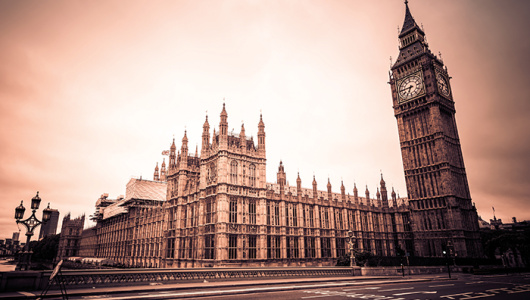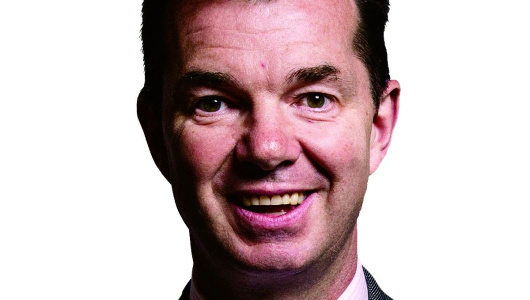John Gardner once said, “History never looks like history when you’re living through it”, but advisers and their clients may already sense otherwise about 2022.
The passing of Elizabeth II moves those of us under 70 (just) into a Carolean age.
Meanwhile 80% of the population (i.e those under 60) are now learning to manage households amid double digit inflation rates for the first time, while burdened with accelerating interest rates as the Bank of England (BoE) fulfils its key responsibility, that is, the pursuit of price stability, thus allowing economic performance to blossom.
Testing times for advisers, for sure.
Meanwhile, the curtain opens on a new set of political actors seeking to write their own version of history, as just under 0.2% of UK registered voters elected a former President of Oxford University’s Liberal Democrat Society as Conservative party leader, and coincidentally our new Prime Minster.
Even the keenest champions of trickle-down recognise that the beneficial effects on an economy are most likely to be evidenced when taxes are in a ‘Prohibitive Range’
Fall in incomes
High on Liz Truss’s list of priorities is the mitigation of the ‘cost-of-living crisis’. This handy soundbite camouflages the reality of a significant fall in real disposable incomes since late 2021.
According to the Office for National Statistics*, 46 million UK adults report their cost of living has increased, and more ominously 16 million people – more than a third of the adult population – are cutting back on food and other essentials.
The gap between haves and have nots threatens to widen.
Now I’d argue that the role of a government is to provide the boundaries for everyday behaviour for its citizens, to protect them from outside interference, but especially provide for their well-being and happiness.
It is hard to recall an incoming PM facing greater obstacles to fulfilling that accountability: rising costs of food and energy, interest rate hikes, a rangebound stock market, a weak currency and a forecast stagnating economy** do not represent the ideal hand to be dealt.
With an independent central bank, a government’s available toolkit is limited to fiscal policy. Theory dictates disinflationary tactics include raising taxes, cutting borrowing, introducing wage and price controls etc – hardly likely to enhance one’s re-election chances.
Consequently, Ms Truss has turned to history as a source of inspiration, namely Reaganomics, Thatcherism and so-called ‘trickle-down’ theory.
Trickle down fallacy
For those unfamiliar with an economic idea as ‘80s as padded shoulders and Miami Vice, the idea is you make the wealthy even richer by cutting taxes on investments, businesses and high earners. This drives economic growth, which would eventually benefit the less well-off.
In line with this strategy, the removal of the cap on bankers’ bonuses is already promised, and a significant rise in the threshold for higher rate tax is rumoured to be on the cards.
The gap between haves and have nots threatens to widen
Now even the keenest champions of trickle-down recognise that the beneficial effects on an economy are most likely to be evidenced when taxes are in a ‘Prohibitive Range’, which goes from a 100% tax rate to around 50%.
When tax rates fall below this range, further cuts do not stimulate enough economic growth to offset lost revenue.
In the Thatcher era the maximum income tax rate was 98%, and between 1979 and 1988 that rate fell to 40% while basic rate fell from 33% to 25%.
It may be a stretch to see the same effect by cutting the odd percentage point today.
Meanwhile, against this background our retiree clients have seen their investment portfolios’ values depressed, while living costs escalate.
Many of these clients will be “lower risk” and consequently presenting their advisers with difficult conversations.
Disinflationary tactics include raising taxes, cutting borrowing, introducing wage and price controls etc – hardly likely to enhance one’s re-election chances
Global equities (the Ukraine conflict notwithstanding) have suffered, but the UK more than most.
While the index of our leading 100 companies, dominated by oil, mining and banks, is up 7%, sensible managers diversify across medium and smaller companies too.
Alas, the FTSE 250 is down 19% over 12 months, and FTSE Small cap is down 14%. Over 12 months, UK Gilts have fallen 22%, Corporate Bonds are down 20% and Index-Linked Gilts down 30%. Normally less-volatile portfolios (ie containing more bond holdings) will have suffered accordingly.
The UK pound is now the weakest it has been in almost 40 years, yet counterintuitively perhaps, this benefits overseas investments, e.g. dollars buy more pounds.
While the index of the US’s 500 largest companies is down 13% over the last 12 months, since Sterling has lost 17% over the period, a UK investor’s holding is in fact up by 4%.
Any manager choosing to hedge the currency would have been 17% worse off. As a result, higher risk portfolios (i.e. holding less bonds and more unhedged equity) may have suffered less than expected.
Regime change
We are in the midst of a historic regime change, both political and economic, where money in the financial system that was cheap and plentiful for decades, is now being withdrawn and costs are increasing.
This creates a huge amount of uncertainty and the increased risk of error, not just on behalf of investors but politicians and policy makers as well, is significant.
To paraphrase Admiral William Halsey, there are no extraordinary people, just extraordinary circumstances that ordinary people must deal with. The value of advice may never have been more important than it is now.
Graham Bentley is chief investment officer at Avellemy
1.ONS Opinions and Lifestyle Survey, July 2022
2.OECD Economic Survey of United Kingdom August 2022














“For those unfamiliar with an economic idea … the idea is you make the wealthy even richer by cutting taxes on investments, businesses and high earners. This drives economic growth…” I would find it helpful if the Chancellor spelled out exactly what the linkages were that drove this growth, by how much growth was expected to increase as a direct result of these changes and, importantly, the timescale over which these benefits were to be delivered.
No one should forget the lags in the system and the fact that these tax reductions do not come into place for another 6 months. In the meantime, sterling has fallen and the Bank of England is likely to raise interest rates – both serving to increase the squeeze of the cost of living crisis.
I like the economist JK Galbraith’s memorable description of trickle-down economics, “the less-than-elegant metaphor that if one feeds the horse enough oats, some will pass through to the road for the sparrows”.
I always learnt another phrase for trickle-down economics – ‘It’s a rising tide that floats all boats’ Only in this case far too many boats have holes in them and won’t float at all.
In the end Truss economics will require most of us to wear a truss, as our finances will be well and truly ruptured.
Real UK household incomes have been falling for some years. The result of low productivity – primarily in the public sector – and an excessive cost burden of regulation, associated inspectorates and all those unnecessary jobs created in the public/private sectors alike to deal with them. UK business drags an ever burgeoning ball and chain. Time to take a hacksaw to the chain – yes, to howls of socialist protest about the terrible consequences of economic freedom.